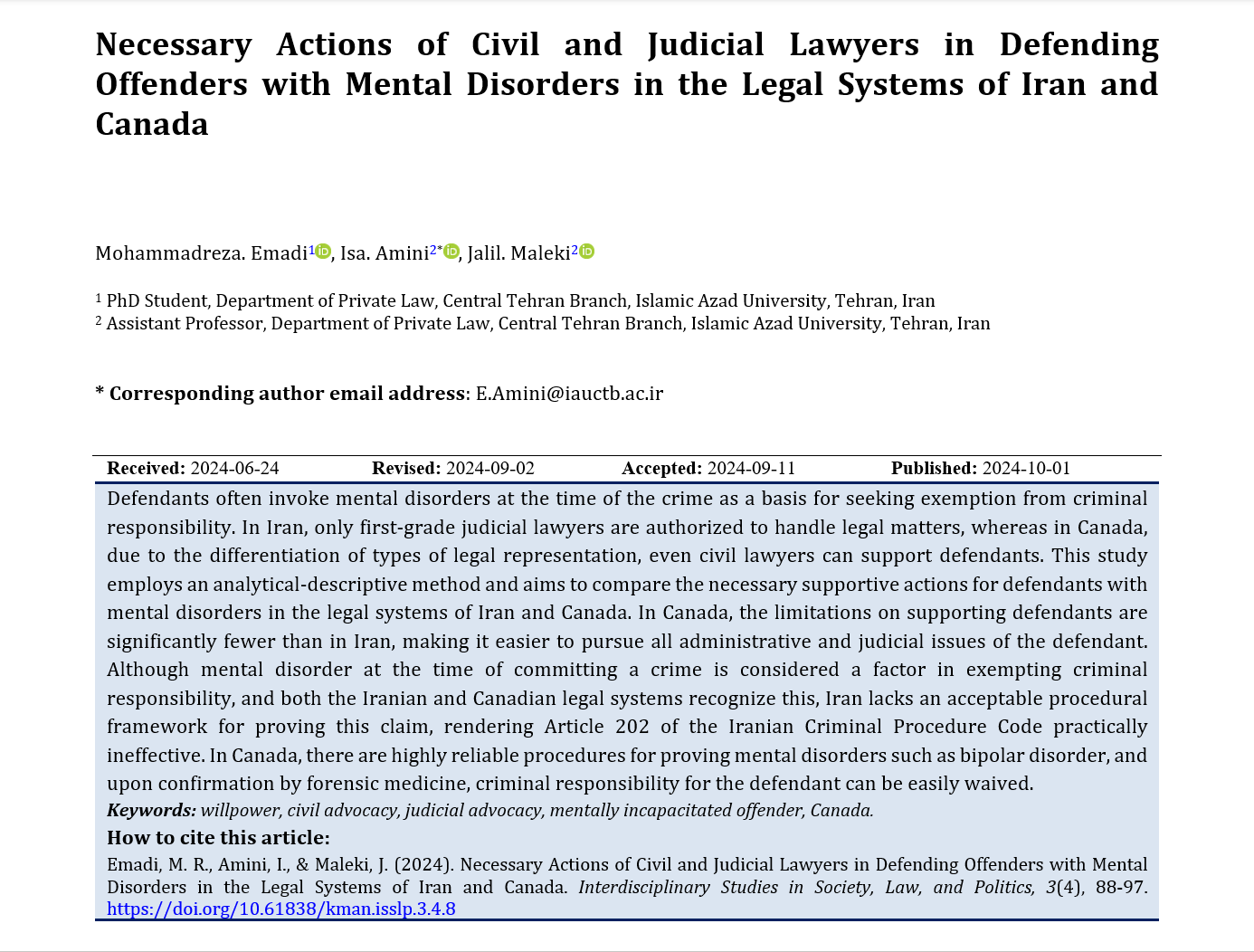Necessary Actions of Civil and Judicial Lawyers in Defending Offenders with Mental Disorders in the Legal Systems of Iran and Canada
Keywords:
Will, Civil Advocacy, Legal Advocacy, Criminal Insanity, CanadaAbstract
Defendants often invoke mental disorders at the time of the crime as a basis for seeking exemption from criminal responsibility. In Iran, only first-grade judicial lawyers are authorized to handle legal matters, whereas in Canada, due to the differentiation of types of legal representation, even civil lawyers can support defendants. This study employs an analytical-descriptive method and aims to compare the necessary supportive actions for defendants with mental disorders in the legal systems of Iran and Canada. In Canada, the limitations on supporting defendants are significantly fewer than in Iran, making it easier to pursue all administrative and judicial issues of the defendant. Although mental disorder at the time of committing a crime is considered a factor in exempting criminal responsibility, and both the Iranian and Canadian legal systems recognize this, Iran lacks an acceptable procedural framework for proving this claim, rendering Article 202 of the Iranian Criminal Procedure Code practically ineffective. In Canada, there are highly reliable procedures for proving mental disorders such as bipolar disorder, and upon confirmation by forensic medicine, criminal responsibility for the defendant can be easily waived.
Downloads






